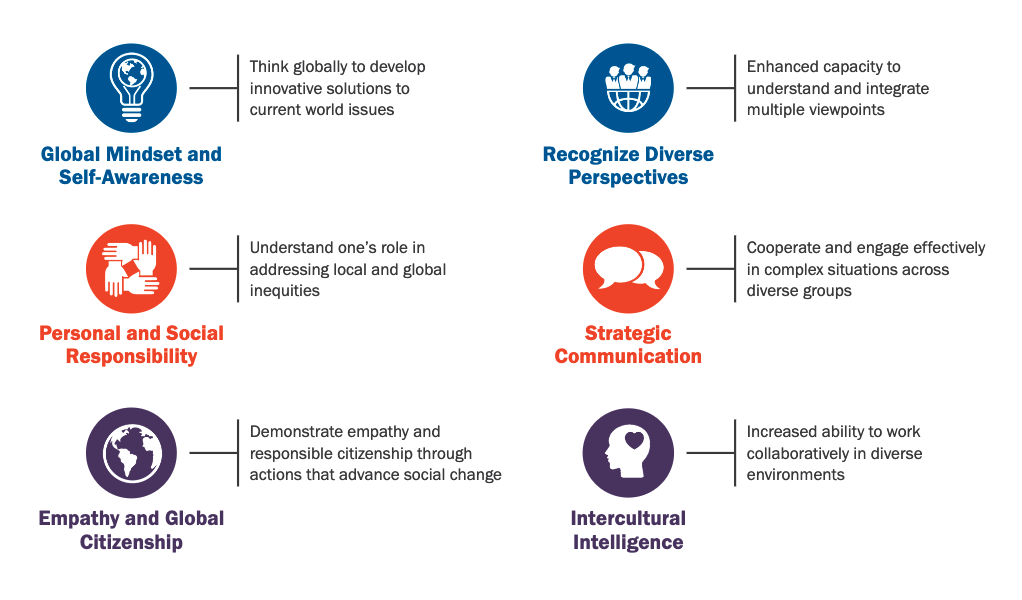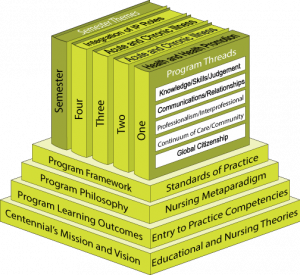Program Learning Outcomes and Curriculum
Your program curriculum is designed to ensure graduates acquire the essential skills, knowledge, and attitudes appropriate and relevant to both the needs of students and employers.
Program Vocational Learning Outcomes
Program vocational learning outcomes describe what graduates of the program have demonstrated they can do with the knowledge and skills they have achieved during their studies. The outcomes are closely tied to the needs of the workplace. Through assessment (e.g., assignments and tests), students verify their ability to reliably perform these outcomes before graduating.
The program vocational learning outcomes for this program are
- Communicate therapeutically with clients and members of the health care team.
- Assess clients across the life span, in a systematic and holistic manner.
- Plan safe and competent nursing care, based upon a thorough analysis of available data and evidence-informed practice guidelines.
- Select and perform nursing interventions using clinical judgment, in collaboration with the client and, where appropriate, the health care team, that promote health and well-being, prevent disease and injury, maintain and/or restore health, promote rehabilitation, and/or provide palliation.
- Evaluate the outcomes resulting from all interventions in the nurse-client interaction and modify the plan of care as required.
- Act equitably and justly with clients and members of the health care team .
- Adapt to a variety of health care settings, using different leadership skills and styles as appropriate to each setting.
- Contribute to creating a healthy and safe work environment in a variety of health care settings.
- Practice in a self-regulated, professional and ethical manner, complying with relevant legislation and with the standards of both the regulatory body and the practice setting to provide safe and competent client care.
Essential Employability Skills Outcomes
Essential Employable Skills (EES) are skills that, regardless of a student’s program or discipline, are critical for success in the workplace, in day-to-day living and for lifelong learning. Graduates will reliably demonstrate abilities in six skill categories:
Global Citizenship and Equity Learning Outcomes
There are six Global Citizenship and Equity (GCE) learning outcomes integrated into Diploma and Advanced Diploma programs as a component of Centennial’s Signature Learning Experience (SLE). The SLE reflects the College’s promise to provide students with a distinctive and inclusive educational experience that builds on a foundation of global citizenship, equity, and social justice. Certificate and Graduate Certificates also include at least two GCE learning outcomes. The GCE learning outcomes are:
- Identify one’s role and responsibilities as a global citizen in personal and professional life.
- Identify beliefs, values and behaviours that form individual and community identities and the basis for respectful relationships.
- Analyze issues of equity at the personal, professional, and global level.
- Analyze the use of the world’s resources to achieve sustainability and equitable distribution at the personal, professional, and global level.
- Identify and challenge unjust practices in local and global systems.
- Support personal and social responsibility initiatives at the local, national, and global level.
Global Citizenship and Equity Portfolio
As a component of the SLE, Diploma and Advanced Diploma program students will complete the Global Citizenship and Equity (GCE) Portfolio. Building the GCE Portfolio is a process of documenting your GCE learning. Each item selected for inclusion in the portfolio demonstrates growth and understanding of Global Citizenship and Equity within your program of study.

Students are encouraged to develop their GCE Portfolio beginning in their first semester. You will add artifacts from coursework and accompanying reflections as well as artifacts arising from co-curricular activities, volunteering, etc. to your portfolio as you progress through the program. You are encouraged to use the ePortfolio tools available on eCentennial, as well as to develop an online professional portfolio presence through LinkedIn and/or other personal websites/blogs.
Curriculum Frameworks
Practical Nursing Program Framework
Several conceptual frameworks were agreed upon for use in the Centennial College Practical Nursing Program. These frameworks along with the vision, mission, philosophy, and the metaparadigm of nursing became the foundation of the entire curriculum and the focus of the program threads, semester themes and program learning outcomes for PN program.
There are five main program threads. These threads serve to provide guidance for the curriculum by helping to organize the curriculum content. The threads of the program are reflected horizontally in diagram of the model and represent major clusters of content that are in all semesters across the entire practical nursing program but in varying degrees of depth in the various courses across the program. Each thread is progressively covered in more depth as students move from one semester to the next. This maintains the coherence of the program. While not all courses within a given semester will contain all these threads, individual threads are embedded in at least one course of each semester. Semester themes are reflected vertically by each semester and represent the primary focus of each semester. All semester one courses focus on “health and health promotion”, while semesters two and three have a focus or theme of “acute and chronic illness” while the focus for the fourth semester is “integration of Inter- professional roles”
Threads of the PN Program include:
- Knowledge/Skills/Judgment
- Communications/Relationships
- Professionalism/Inter-Professionalism
- Continuum of Care/Community
- Global Citizenship
Themes of the PN Program by semester are:
- Semester 1: Health and Health Promotion
- Semester 2: Acute and Chronic Illness
- Semester 3: Acute and Chronic Illness
- Semester 4: Integration of Interprofessional Roles

Program Philosophy
The purpose of the Practical Nursing Program is to educate students within the context of a responsible, global citizenship to meet the demands of current health care trends and a more diverse society. With the requirements for increased breadth and depth of knowledge to practice in an expanded practical nurse’s role, the PN Program at Centennial College also launches students to become life-long learners, problem solvers and critical thinkers. We believe that in building upon concepts, theories and approaches of diversity and holism, we have developed the best educational programs for Practical Nursing students. The concept of humanistic caring is central and unique to nursing and provides an essential core to our curriculum. We believe values such as caring, fairness, respect for others, truthfulness, genuineness, maintaining commitments, privacy, confidentiality and integrity are important to the profession of nursing and should be evident in all professional relationships.
The underpinnings of our philosophy are as follows:
Phenomenology
Pivotal to the practice of nursing and to this program is the understanding and making meaning of the lived-experiences of the “other”, of clients, of self and of communities. Phenomenology involves exploring “the meaning of illness for the patient” (Kestenbaum, 1982 as cited in Benner, P., & Wrubel, J., 1989 pg 7). This means as a practical nurse, consideration should be given to the impact of the lived experience of health, wellness, illness and disease on both the individual and/or family.
Critical Social Theory
We believe and understand that we cannot assist clients, communities and ‘others’ to heal and habilitate without considering and addressing how power inequities, systems, societal structures, politics, economics and laws affect their lives. This belief is consistent with the World Health Organization’s approach to using the social determinants of health to address global long term health solutions. This belief is also consistent with the mandate of Centennial College’s “Signature Learning Experience” that prepares students to play an active role as change agents in the world by gaining the knowledge and skill to work in a diverse society.
Our program philosophy draws upon the work of a variety of theorists including evidence and needs-based approach theories. These above approaches provide the foundation for the various themes and the threads of the PN curriculum at Centennial College.
The three vertical themes of Health and Health Promotion, Acute and Chronic Illness and Integration into the Inter-professional Role of the Practical Nurse guide the curriculum of each semester. The five horizontal threads of Communication/Relationships, Knowledge, Skills and Judgment, Professionalism, Community and Global Citizenship incorporate the foundational components of nursing. These three vertical themes and five horizontal threads come together in synergy to create a dynamic learning experience for the practical nursing student at Centennial College.

